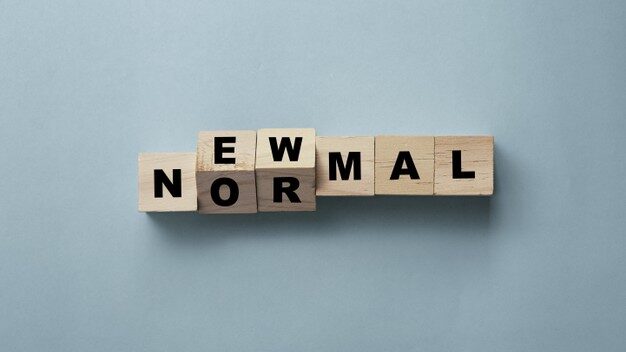IDEAS FOR BUSINESS LEADERS FROM A SUSTAINABILITY EXPERT
Jovin Hurry | International Consultant in Sustainability
Stemming from more than twenty years of advisory experience in Nordic countries and Asia, notably Finland, Sweden and Singapore, Jovin Hurry is an expert in sustainability strategies for business leaders. The internationally sought after panelist shares some core advice on how to efficiently ride the wave of the new normal.

Bio Data: Jovin Hurry has presently joined the MBA Elective ‘Future of Capitalism’ jointly offered by the IESE Business School (Spain) and Shizenkan University (Japan) in cooperation with the School of Inspired Leadership (India), and Fundação Getulio Vargas (Brazil). He advises companies and institutions on how they can negotiate around core sustainability and business strategy issues. He can be reached at jovin.hurry@iese.net.
How could we build Mauritius 2.0: Three non-obvious ideas for business leaders
Shift happens. We live in an unprecedented time. A window has opened to build anew. Riding an inevitable new normal, what could a Mauritius 2.0 look like?
Learning from the early 20th century Baptist preacher Russell Conwell’s story of Acres of Diamonds, featuring the wealthy Al Hafed’s search for the gemstone, “we do not need to look elsewhere for knowledge, opportunity or fortune to make it happen. For the best results, we can dig in our own backyard.“

1. History lesson: Build a shared sense of the right thing
Mauritius has already displayed its credentials of a particularly unlikely success story. It built a history of collaboration between government and business when there was none. Mauritians talked about dialogue and compromise. Driven by a strong sense of self-preservation, a creative tension between self-interest and a shared sense of the right thing was instrumental in driving Mauritius’ unique combination of economic and social strength. That was half a century ago, prior to the Union Jack being hoisted down the flagpole. Facing (pun intended) the covid pandemic, Mauritius is again buoyed by this sense of self-preservation. Fragile, breathless and geographically isolated, the island state can rebuild its resilience it once had when it confronted unending dilemmas as it sought independence. Let’s revisit some of these challenges for perspective’s sake.
Tough challenges: A case of ‘been there done that’
The few wealthy Franco-Mauritians property owners owned the sugar plantations on which the hundreds of thousands Indo-Mauritians worked. Tensions between them remained high, quelling any prospects for social development.
The Nobel Prize–winning economist James Meade published an article in 1962 entitled “Mauritius: A Case Study in Malthusian Economics,” in which he suggested that Mauritius faced “ultimate catastrophe…”
Post open election of August 1967, and only six weeks before the formal grant of independence, violent riots between Creoles and Muslims in Port Louis left 29 people dead and hundreds injured. British troops had to be brought in to restore control. Nearly 600 houses were burnt down. Over 2,000 arrests were made.
We have gone against the tide before
Soon, Mauritius was finally free from its colonialists, with its first Prime Minister, yet the country was at the risk of collapse. What about other African countries then facing similar circumstances as Mauritius? Well, Uganda had driven its minority out. The new government in Kenya had created a one-party state. Tanzania had nationalised minority-owned businesses. Yet, the Father of the Nation of Mauritius did something very different. The Leader of the Mauritian Labour Party reached out to the Parti Mauricien Social Démocrate, suggesting that they together form a government of national unity.
This unusual move was risky. The country was divided. The economy was weak. The business sector had suspicions running high on the PM’s motives. Many Mauritians, including leading intellectuals, emigrated. Government and business had not collaborated before. In fact, many members of Ramgoolam’s own party chided any ‘rapprochement’ with the “capitalists” who dominated the economy.
The joys of the common view
Fortunately, dialogue and compromise to what mattered for the nation led the way and the agreement was enormously successful at a time rife with divisions. International tourism soared. The Export Processing Zones developed as the economy diversified. Elections have been free and fair and have consistently led to peaceful transfers of power. The judiciary is independent. The press is lively and free. Mauritius is among the top of the World Bank’s Ease of Doing Business Index. Gender equality has improved. Poverty rate has fallen.
Yes, tension between the elites and those who are less well off, and between Francophones and Hindus, continues to this day. More can be done about socio- economic development. However, we’ve come a long way.
Learning from our own experience
The seed of resilience has already been planted in our population, watered by a shared sense of the right thing for our common good, photosynthesized by inclusive institutions that businesses helped build, and fertilised by enlightened self-interests. This is a great foundation upon which a thriving Mauritius 2.0 could be built. We have done it and we’re capable of building a strong nation again.



Comments are closed.